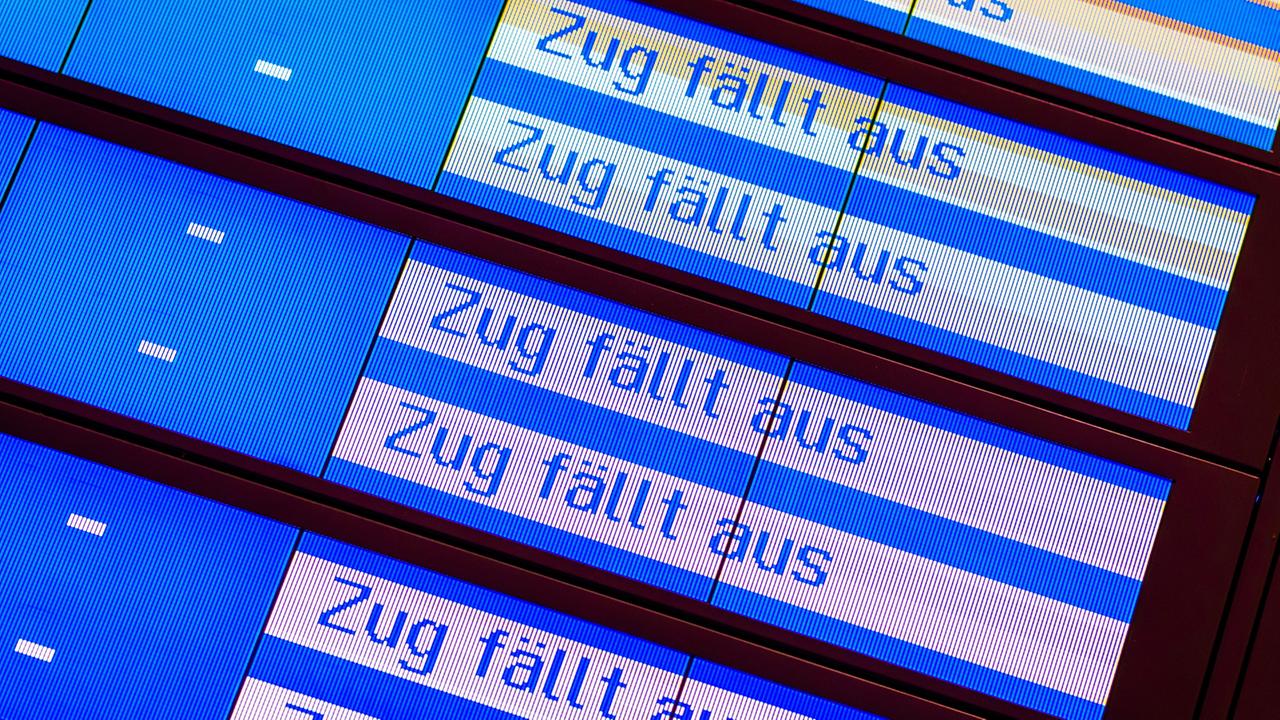faq
Deutsche Bahn is taking legal action against the GDL strike with an urgent application. How high are the legal hurdles for this? How does the court process work?
Is the right to strike guaranteed by the Basic Law?
Yes that’s it. The Basic Law does not explicitly contain a sentence such as “every union has the right to strike”. But Article 9 explicitly regulates the right to form trade unions.
It is recognized that industrial action is one of the most important rights of a trade union. The right to strike is a fundamental right and therefore a valuable asset. This is emphasized again and again from all sides. However, there are also certain legal limits to a strike. The railway is now asserting this, and that is what the court will now be dealing with.
What are these legal limits?
Legal limits for a strike include: The strike must pursue a goal that can actually be regulated in a new collective agreement, such as wages or working hours. For example, it must not be a purely politically motivated strike. Another limit: the strike must also be “proportionate” to achieve the goal. To put it simply, it must be the last resort and must not be excessively harsh.
“Proportionate” is a flexible term where courts generally give unions a lot of leeway. The hurdles for a court to use this argument to stop a strike tend to be high.
There have already been similar ones Legal proceedings?
There were similar trials to the rail strike in 2014 and 2021, in which the railway lost in each case. During a comprehensive strike in March 2023, for example, a court in Hamburg ordered that the Elbe Tunnel must remain open in emergency operation. In May last year, a 50-hour warning strike by the EVG rail union was averted through a court settlement – that too is always a conceivable option. However, it is impossible to predict how the current case will turn out in court.
How does the process work now?
When you think of court cases, you often think of months-long proceedings. However, an urgent procedure like this can also be decided within a short time – even within hours.
Deutsche Bahn has submitted an urgent application to the Frankfurt Labor Court. Negotiations are scheduled to begin at 6 p.m. on Monday. The arguments are then exchanged in the courtroom. After a decision, the losing side could appeal to the regional labor court in Frankfurt.
If the strike is banned by the labor courts, the union could still submit an urgent application to the Federal Constitutional Court in Karlsruhe.
What does the railway argue with?
As in the past, the railway argues that the announced strike is disproportionate and therefore too harsh. It is interesting that there is now another argument: Last summer, the GDL founded a cooperative called “Fair Train” – with the aim, among other things, of hiring train drivers to the railway. The railway sees this as a conflict of interest: a union may not also act as an employer. But this is the case here, says the railway and wants to establish that the union has therefore lost its ability to collectively bargain. That’s why she sued. However, this is a different lawsuit that was filed a few days ago.
The urgent proceedings now concern the announced strike from Wednesday. So these are basically two construction sites. And yet: The railway has announced that it will also bring the “lack of collective bargaining” argument into the current negotiations about the strike.






